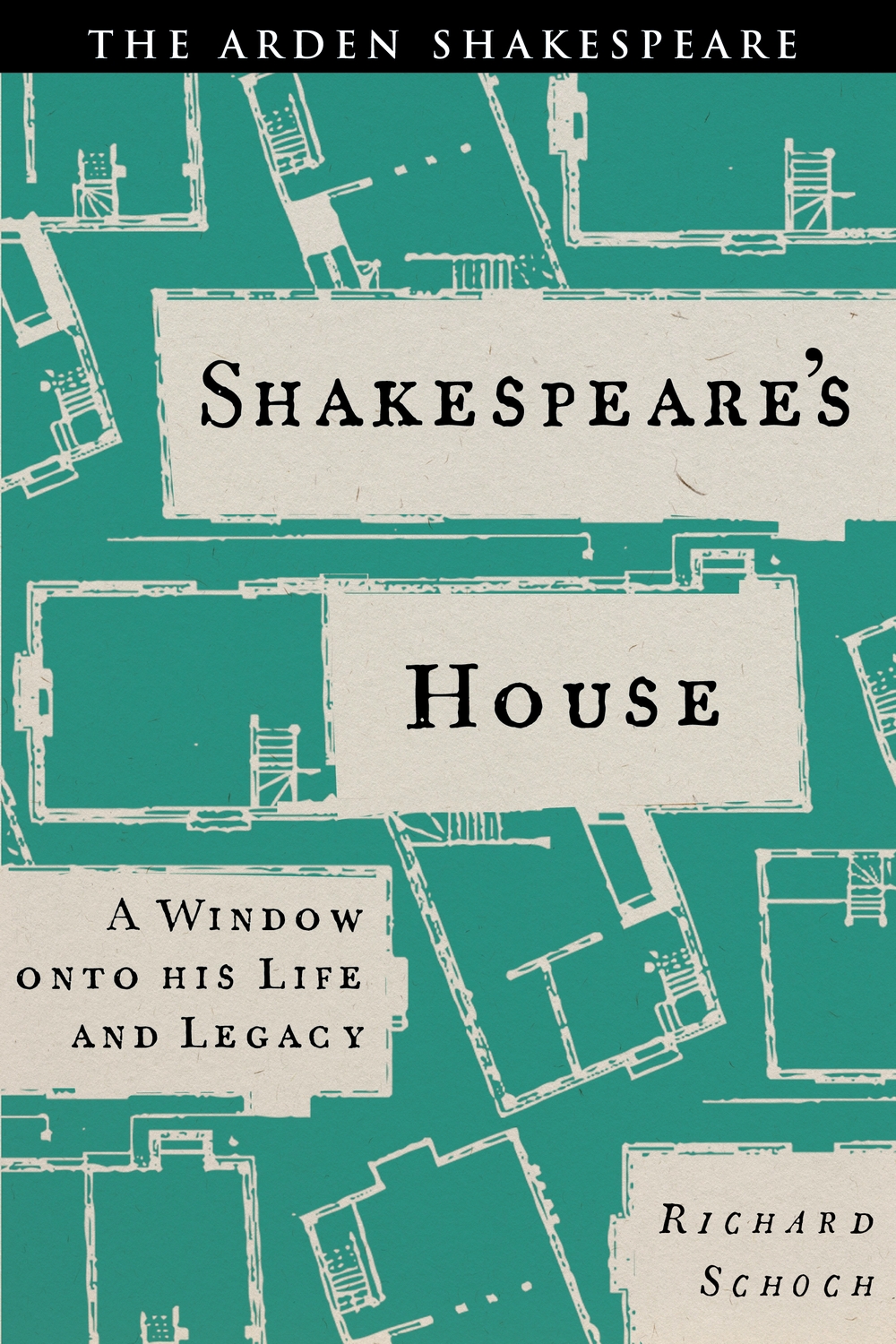Richard Schoch, in the subtitle of his new book on Shakespeare’s House, promises something big: “a window onto his life and legacy.” To the disgruntled reader – pushed to the brink by one too many new books on Shakespeare, each nervously proclaiming truly never-before-seen revelations – I suggest patience. Schoch is aware of the balance that writing this kind of book demands. He also has the sort of well-oiled experience that reassures us of a pair of safe hands. There’s a sweet spot that must be struck when writing a Shakespeare book, one between nicheness and accessibility, originality and straightforwardness. Schoch nails the brief, and then some.
The word “window” acts as more than the sum of its parts. Its primary meaning is one of invitation: Schoch is offering up a new perspective on Shakespeare. But it is also a neat segue into the star of this tome. You are not here to learn more about Shakespeare, Schoch posits. You are here to learn more about his house. (It goes without saying that this in-road will throw up many and various delightful tid-bits and truly never-before-seen revelations. But we’re not there yet.) The Prologue lays out an essential aim, which is to explore “how Shakespeare understood the world and how the world has understood Shakespeare” through discussion of Shakespeare’s birthplace in Stratford-upon-Avon. You can probably see it in your mind’s eye; it has been the star of many a postcard and cover, ironically, of many a Shakespeare book.
Schoch is fascinated by this building, in particular how its story informs that of Shakespeare’s, its most intriguing resident (though Mary Hornby, its early 19th century dweller and enthusiastic peddler of fake relics and fake news about her famous predecessor is a worthy runner-up). Schoch builds outwards a holistic view of Shakespeare from the playwright’s earliest and most enduringly physical context.
 What I find so joyous about Shakespeare’s House is the hastiness with which it gets going. Chapter One, broken into sections headed by relevant quotations, thrusts onstage Shakespeare’s family at the time of his birth, members of which are introduced quickly and precisely, with the perfect amount of accompanying information.This is at times a risky structure, where thoroughness is sacrificed for speed. Most of the time, though, it works, and the pay-off is a book that soon reveals itself to be genuinely and sustainedly interesting. Schoch need not be self-conscious about his approach – “[b]ut we are getting ahead of ourselves,” he closes this first section, as we catch our breath after a comprehensive rundown of 16th-century Warwickshire’s most eminent farming villages – because it is the getting-ahead-of-himself that keeps his reader turning the page.
What I find so joyous about Shakespeare’s House is the hastiness with which it gets going. Chapter One, broken into sections headed by relevant quotations, thrusts onstage Shakespeare’s family at the time of his birth, members of which are introduced quickly and precisely, with the perfect amount of accompanying information.This is at times a risky structure, where thoroughness is sacrificed for speed. Most of the time, though, it works, and the pay-off is a book that soon reveals itself to be genuinely and sustainedly interesting. Schoch need not be self-conscious about his approach – “[b]ut we are getting ahead of ourselves,” he closes this first section, as we catch our breath after a comprehensive rundown of 16th-century Warwickshire’s most eminent farming villages – because it is the getting-ahead-of-himself that keeps his reader turning the page.
And what soon becomes clear is a thematic focus on what Schoch genuinely finds interesting, not what is orthodox and expected in Shakespeare scholarship. As we whizz through the building and occupation of his birthplace, an image of Shakespeare the boy and Shakespeare the man emerges more organically than it might in a straightforward biography or conventional work of criticism. I like any writer who refers to Shakespeare as “rascally,” because Shakespeare was rascally. Moreover, Schoch comes to these sorts of conclusions through spontaneous, left-field routes, such as his application of As You Like It’s “whining schoolboy”/ “creeping like a snail” image to the young Bard as a normal, school-hating, mischief-causing child. Images like this of Shakespeare’s are illuminated by taking seriously his own daily commute, to and from the house on Henley Street. More generally, the inclusion of Shakespeare’s own words colour passages of intellectual significance, such as Schoch’s treatment of how Shakespeare wrote about the word and concept “house”.
As the book develops, the reader is increasingly charmed by Schoch’s ability to magnify low-stakes, background moments in history into something chapter-worthy. “If only John Shakespeare had observed that public health rule. He could have saved himself a shilling,” Schoch sombrely reminds us while reflecting on Shakespeare senior’s errant flouting of a rule against the public dumping of sewage, a note that forms part of an incisive commentary on Tudor domesticity. We are introduced later on to another John Shakespear, representative of “the colourfully named Leicestershire market town Ashby-de-la-Zouch,” whose donation in 1856 to the derelict house enabled restorations. It goes without saying that this was an uproariously complicated project; Schoch’s identifies the foibles of Victorian bureaucracy with a wry smile.
This would be a gift for the eccentric and expansive reader in your life, not necessarily the GCSE student whose study you’re trying to philanthropically supplement (although you will find, on page 21, a truffle of Grade Nine-level Macbeth insight…). Schoch drifts between themes, tackling the big ones – money, power, legacy – with as much ease as more trifling subject matter: bad neighbours, furniture, planning permission, American entrepreneurialism (I like the low-key threat of the States throughout this work, as if still today Schoch fears some hazy Silicon Valley technocrat buying the rights to the entire Shakespearean canon). If you have an interest in Shakespeare, fantastic; you are positively guaranteed to learn something new and pay more serious attention to issues of materiality and place that oftentimes fly under the radar during our study of genius. If you don’t give a fig about the Bard, but happen upon a copy, give it a go. There is more than enough insight into the things that were essential to Shakespeare, that are essential to us, to keep you hooked.
- Shakespeare's House: A Window onto his Life and Legacy by Richard Schoch (Bloomsbury, £25)
- More book reviews on theartsdesk















Add comment